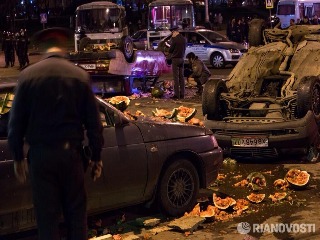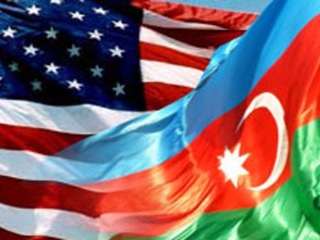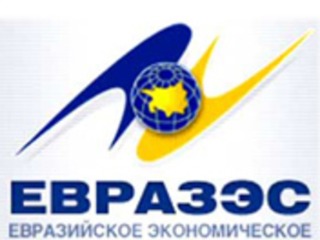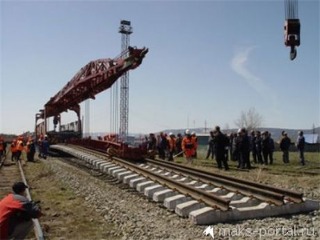“CACI Analyst, November 27, 2013”
The Biryulevo Riots and Their Implications
By Emil Souleimanov and Megan Ouellette (the 27/11/2013 issue of the CACI Analyst)
On October 11, word spread through social media about the murder of a 25-year old Russian by a suspect from the Caucasus during a street clash in Moscow’s southern periphery, an event that prompted anti-immigrant riots in Moscow accompanied by attacks on foreigners’ properties as well as foreigners themselves. The alleged murderer was arrested a few days later by Russian police, yet the scope of the riots and the authorities’ subsequent response signaled that much more was behind the incident than a simple, yet tragic, homicide.

The Strategic Context of U.S.-Azerbaijan Relations after the Presidential Elections
By Mamuka Tsereteli (the 27/11/2013 issue of the CACI Analyst)
On October 9, 2013, Azerbaijan held presidential elections and incumbent president Ilham Aliyev was re-elected for another five year term. The OSCE ODIHR observer mission, as well as the U.S. government, issued critical statements about the conduct of elections by Azerbaijani authorities that created tensions in Azerbaijan’s relationships with Western allies. Issues of concern need to be addressed, but they should not disrupt Western engagement and critical support for Azerbaijan’s sovereignty against the backdrop of assertive Russian policies to limit the Western presence in the broader Eastern European and Central Eurasian Space.

Kazakhstan Increasingly Concerned over Eurasian Economic Union
By Stephen Blank (the 27/11/2013 issue of the CACI Analyst)
Kazakhstan joined the Customs Union with Belarus and Russia in 2010 and by 2012, it had evolved into a single Eurasian Economic Space known also as EurAsEc. The economic union is Putin’s principal foreign policy goal and Ukraine in the West and Kazakhstan in the East are particularly important to the success of this enterprise. Yet, while Ukraine was poised to instead sign a trade agreement with the EU at the Eastern Partnership summit in Vilnius on November 28-29, it has stopped preparing for that signing ceremony, evidently succumbing to Russian pressure. Meanwhile, Kazakhstan has now registered increasingly vocal complaints about the direction EurAsEc is taking.

The Turkmenistan-Afghanistan-Tajikistan Railroad Project: The Prospects of the New Silk Road
By Oleg Salimov (the 27/11/2013 issue of the CACI Analyst)
The challenges of economic development and regional integration in Central Asia have given rise to a number of projects in various spheres. Among these, the “Turkmenistan-Afghanistan-Tajikistan” railroad is directly aimed at stimulating the participating countries' economies through the creation of a better transportation system for easy access to new markets. The project's goal is to expand regional infrastructure, connect the landlocked countries with seaways, and eventually link Eurasian and Southeast Asian markets. The ability of the participants to successfully finalize construction of the railroad, provide security, and incite an interest from other countries will determine whether this project can mark the beginning of a new Silk Road.



